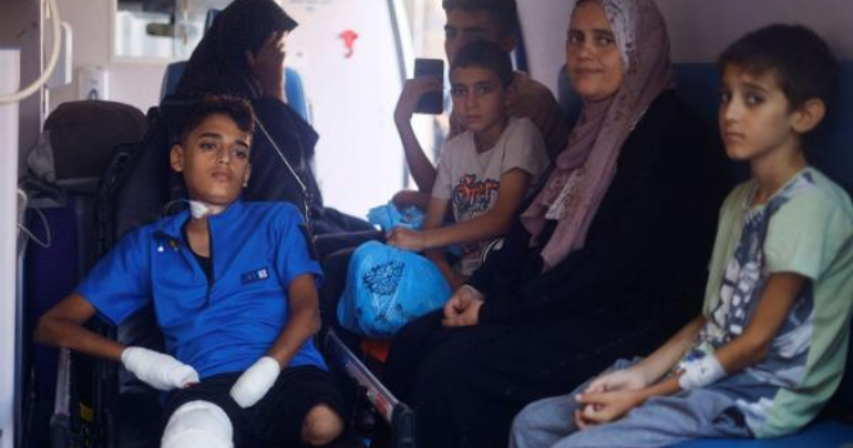Amputations soar but prostheses and painkillers lacking in besieged Gaza

Amidst the ongoing conflict and blockade imposed by Israel, Gaza is facing a severe humanitarian crisis with shortages of essential medicines and medical supplies. The situation has exacerbated the suffering of many, including young children like three-year-old Suhaib Khuzaiq, who underwent a leg amputation due to a shrapnel injury sustained during an Israeli airstrike on his neighborhood in Tal Al-Hawa, southwest of Gaza City, last December.
Suhaib's father, Ali Khuzaiq, 31, expressed his son's urgent need for pain relief and a prosthetic limb, both of which are unavailable within Gaza. The Khuzaiq family, displaced from their destroyed home and now residing with relatives, highlights the broader impact of the conflict on civilian lives and healthcare infrastructure.
The blockade and ongoing hostilities have severely disrupted Gaza's medical facilities, leading to a dramatic increase in amputations as a primary treatment option for injuries that would otherwise be managed differently. According to UNICEF, an average of 10 children per day in Gaza have lost one or both legs since the conflict began, amounting to an estimated 2,000 children affected by amputations. However, these figures are difficult to verify due to challenges in data collection within a war zone.
Medical professionals in Gaza, operating under extreme conditions with limited resources, often find themselves without adequate anesthesia or proper facilities for performing amputations. Dr. Maher, a surgeon at Al-Ahli Hospital in Gaza City, described the grim reality where lifesaving measures sometimes necessitate amputation without sufficient pain management, causing immense suffering to patients.
The shortage of prosthetic limbs further compounds the plight of amputees, particularly children, who struggle to recover without essential medical devices and proper rehabilitation. Nonprofit organizations like Save The Children have raised concerns about the thousands of injured children in Gaza who lack access to adequate pain relief and rehabilitation services.
The blockade imposed on Gaza restricts the entry of medical equipment and essential medications, exacerbating the humanitarian crisis. Families like that of Marwa Abu Zaida, 40, and her eight-year-old son Nasser Abu Drabi, who lost limbs during an Israeli airstrike in Beit Lahia, north Gaza, are left hoping for the conflict to end and for opportunities to seek treatment abroad.
Marwa expressed her concerns about the lack of pain relief and medical care for wound management, highlighting the daily challenges faced by amputees in Gaza. Medical evacuations, essential for patients requiring specialized treatment like cancer therapy, remain rare due to restricted movement out of Gaza.
Bashar Murad of the Palestinian Red Crescent in Gaza lamented the collapse of the healthcare system, emphasizing that thousands of patients requiring treatment outside Gaza remain stranded due to the blockade and limited access to medical care. He cited the dire situation where only a fraction of patients in need of treatment outside Gaza have been able to access it, leaving many without essential medical interventions.
Ali Khuzaiq, Suhaib's father, echoed the despair felt by many in Gaza, expressing little hope for his son's timely evacuation or access to adequate healthcare. The ongoing conflict, characterized by retaliatory strikes and civilian casualties, has claimed thousands of lives on both sides, exacerbating the humanitarian crisis and leaving families like the Khuzaiqs struggling with uncertainty and hardship.
In conclusion, Gaza's healthcare system is on the brink of collapse as the blockade continues to restrict access to essential medical supplies and treatment options. The international community faces mounting pressure to address the humanitarian crisis and facilitate access to medical care for civilians, especially children, who bear the brunt of the ongoing conflict's devastating impact.
By: Sahiba Suri





Comments